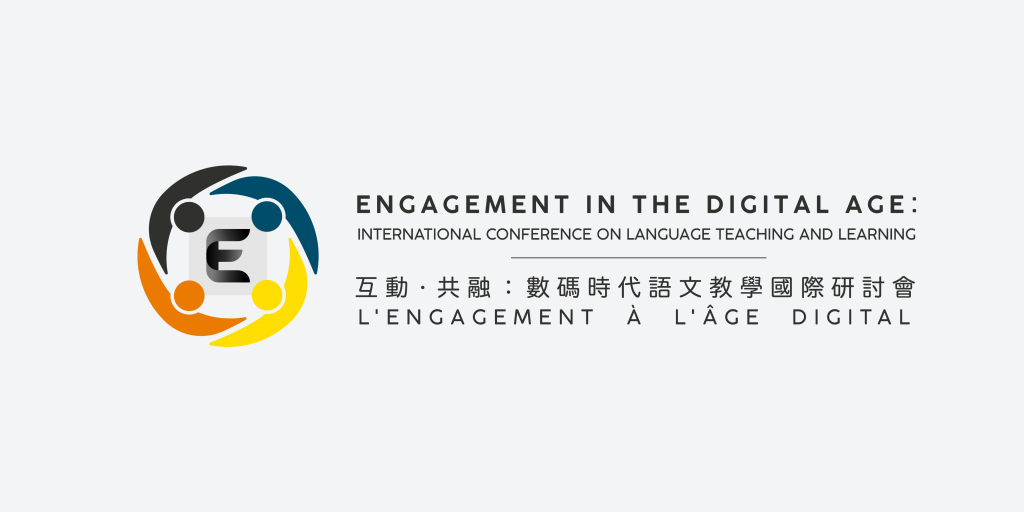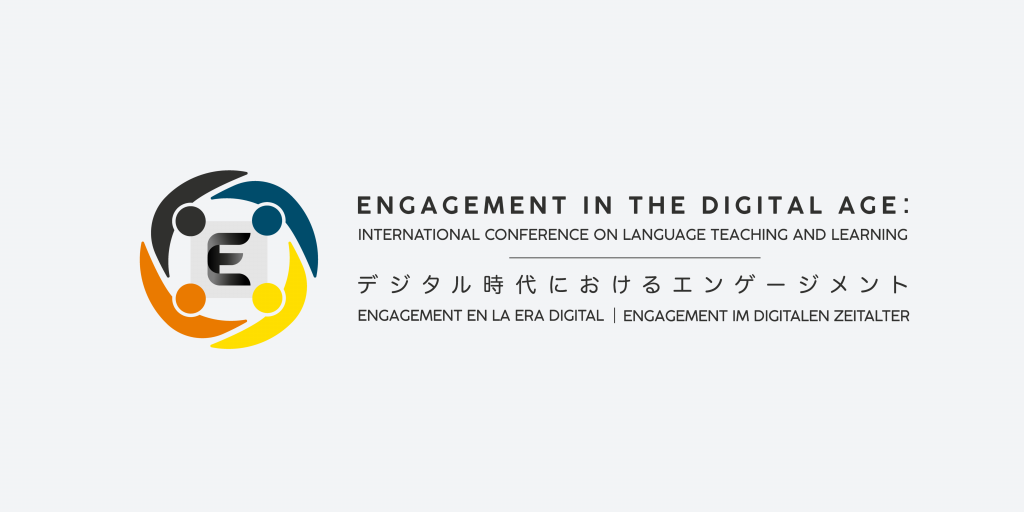

Keynote Speakers
- days
- Hours
- Minutes
- Seconds
IMPORTANT DATES
Abstract submission deadline
30 April 2024
Notification of result
Generally within 4 weeks
Registration deadline
– Early bird: by 10 May 2024
– Regular: after 10 May 2024

Professor Norbert Pachler
Pro-Vice-Provost (Quality and Standards), University College London
Speech Title:
Learner Engagement in Foreign Language Learning and With the Foreign Language – Mediated by Digital Technologies
Learner Engagement in Foreign Language Learning and With the Foreign Language – Mediated by Digital Technologies
This keynote will explore some theoretical underpinnings and practical dimensions of learner engagement as a nascent construct in the field of foreign language learning linked to positive outcomes and motivational satisfaction. It will also problematise the impact of digital technologies including mobile devices and services as well as platformization and datafication of education and attendant phenomena such as data analytics as features of an expanding digital foreign language learning resource ecology and their impact on how engagement manifests itself, can be fostered and measured.
Norbert Pachler (FAcSS, PFHEA), is Professor of Education at the IOE, UCL’s Faculty of Education and Society and Pro-Vice-Provost (Quality & Standards) in the Office of the Vice-Provost: Education and Student Experience at UCL. Between 2013 and 2020 he was Pro-director: Teaching, Quality and Learning Innovation at the IOE and as such had strategic oversight of all taught provision at the Faculty. In addition to foreign language education, Norbert’s research interests include the application of digital technologies in teaching and learning and teacher education and development. He has supervised numerous doctoral students and published widely in these fields.

Professor Rod Ellis
School of Education, Curtin University
Speech Title:
Engaging With Written Corrective Feedback
Engaging With Written Corrective Feedback
The importance of engagement has long been recognized as important for learning in general and increasingly in second language acquisition In the latter, the focus has been on engagement in social interaction and, in particular the interaction resulting from the performance of tasks. In this talk, however, I will consider learner engagement in relation to corrective feedback, drawing on Ellis’ (2010) framework, which distinguished three types of engagement – behavioural, cognitive and affective. While there has been a wealth of research that has investigated written corrective feedback there has been relatively little research that has examined how learners engage with WCF. This is surprising given WCF of any type can only lead to acquisition if learners process it.
Sato and Fujieda (2023) reviewed research has investigated the three types of engagement with WCF using Ellis’ framework. Cognitive engagement has been examined by investigating learners’ awareness and understanding of corrections (e.g. Storch and Wigglesworth, 2010); behavioural engagement has involved looking at the learning strategies used to handle corrections (e.g. Evans, Hartshorn and McCollum, 2010). Affective engagement has focused on learners’ attitudes and emotional responses to the WCF.
I will examine some recent studies that have investigated learners’ engagement with WCF. One study examined the effect of asking learners to think aloud as they processed corrections (Tabari, et al, 2023). Two other studies (Kim and Emiliyanova, 2021; Ekanayaka & Ellis, forthcoming) investigated the effect of two types of behavioural engagement – revising following WCF and peer discussion of corrections) on accuracy in new writing. Lau, Aubrey and Ellis (forthcoming) evaluated the effectiveness of asking students to compile error logs by examining what these showed about their cognitive and affective engagement with WCF and whether they led to acquisition.
I will conclude with some practical observations about how teachers can promote learner engagement with WCF and also point to further avenues of research.
Rod Ellis is currently a Research Professor in the School of Education, Curtin University in Perth Australia. He is also a visiting professor at Shanghai International Studies University as part of China’s Chang Jiang Scholars Program and an Emeritus Professor of the University of Auckland. He is a fellow of the Royal Society of New Zealand. His published work includes articles and books on second language acquisition, language teaching and teacher education. His two latest books are Reflections on Task-based Language Teaching (Multilingual Matters, 2018) and the co-authored Task-based Language Teaching: Theory and Practice (Cambridge University Press, 2020) Other major publications include Language Teaching Research and Language Pedagogy in 2012, (Wiley-Blackwell), (with Natsuko Shintani) Exploring Language Pedagogy and Second Language Acquisition Research in 2014 (Routledge) and Understanding Second Language Acquisition 2nd Edition in 2015 (Oxford University Press). He has also published several English language textbooks, including Impact Grammar (Pearson: Longman). He is the recipient of a number of prestigious awards – The British Association of Applied Linguistics best book award (1986), the Duke of Edinburgh best book award (1995), the Modern Language Association of the United States best book award (1988) and the International Association for Task-based Language Teaching annual prize (2021. He has held university positions in six different countries and has also conducted numerous consultancies and seminars throughout the world.

Professor Boping Yuan (袁博平教授)
Faculty of Asian and Middle Eastern Studies, University of Cambridge
Speech Title:
Categorization of Cues in L2 Input and Their Implications for L2 Acquisition
Categorization of Cues in L2 Input and Their Implications for L2 Acquisition
It is generally agreed that cues in the target language input are crucial for triggering all necessary feature reconfigurations in second language (L2) grammars. However, cues necessary for L2 feature reconfiguration can be obscured as a result of L1 influence and may vary with regard to their robustness and detectability in the input. The main question asked in this talk is to what extent different types of cues in the input can affect the success, failure, indeterminacy or delay in the acquisition of certain linguistic features in L2. This question will be addressed with Chinese and English data. L2 grammars are examined and analysed on the basis of comparisons and contrasts of features between the L1 and the target language and whether features that are absent or different in the L1 grammar can be acquired in L2 grammars. Attempts will be made in the talk to categorize cues in the input into different types on the basis of their saliency and robustness, and they will be labelled as macro-cues, micro-cues, nano-cues. In addition, the case of no cue in the input will be discussed as well. The categorization of cues will be argued to have pedagogical implications for L2 teaching.
Boping Yuan is Professor Emeritus in Chinese Language and Linguistics at the University of Cambridge. He continues to be a PhD supervisor at Cambridge and Fellow of Churchill College, Cambridge. He is currently also a Distinguished Professor in Linguistics at Shanghai Jiao Tong University. His research interests are in linguistic approaches to second/third language acquisition, particularly in non-native language acquisition of Chinese. He has recently developed interests in bilingualism and aphasia and is involved in a joint project in this area at SJTU. He is the editor-in-chief of Journal of Second Language Studies (John Benjamins), and has published numerous articles in internationally prestigious journals. His forthcoming monograph Interlanguage Grammars of Mandarin Chinese is going to be published by Cambridge University Press soon.

Professor Glenn Stockwell
School of Law, Waseda University
Speech Title:
Technology and engagement in language teaching and learning
Technology and engagement in language teaching and learning
Technology has continued to have a transformative role in enhancing engagement in language teaching and learning. Digital tools such as computer-mediated communication, learning management systems, mobile devices, intelligent tutors, virtual and augmented reality, and language learning apps have redefined traditional classroom settings. They are not only making language learning more accessible but also more engaging and interactive, opening up new avenues for more dynamic and realistic contexts. This presentation explores how technology, including rapidly evolving tools such as machine translation and generative AI, can contribute to enhancing the quantity and quality of engagement in language teaching and learning by promoting interactivity, facilitating real-time feedback, and enabling personalized learning experiences. It critically examines the realities of machine translation and generative AI and explores how teachers and learners can engage with and through these technologies. The presentation will conclude with suggestions for how to make the most of available and emerging technologies in an informed way to enhance language teaching and learning in their individual contexts.
Glenn Stockwell (PhD, University of Queensland) is Professor of Applied Linguistics at the Graduate School of International Culture and Communication Studies, Waseda University. He is author of Mobile Assisted Language Learning: Concepts, Contexts and Challenges (Cambridge University Press, 2022) and editor of Smart CALL: Personalization, Contextualization, & Socialization (Castledown Publishers) and Computer Assisted Language Learning: Diversity in Research and Practice (Cambridge University Press, 2012). He is editor-in-chief of Computer Assisted Language Learning and the Australian Journal of Applied Linguistics. His current research interests include the impact of technology on teaching and learning, mobile-assisted language learning, artificial intelligence in language education, teacher and learner training with technology, and the development of learner autonomy.
